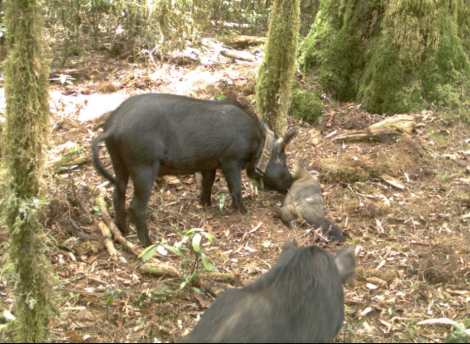OSPRI advising hunters not to release pigs into new areas
Releasing pigs into new locations can spread disease and unintentionally restrict hunting in the area.

Over the years, OSPRI has worked hard to eradicate TB in possums from large areas of New Zealand. OSPRI’s North Island regional partner Phil Dawson says this work can all be undone by the reintroduction of TB infected pigs with the potential of spill back of infection into the possum population. "Essentially moving and releasing pigs from one area to another area can also introduce TB into an area. Possums can scavenge a hunted pig carcass or offal and get infected with TB."
Steve McFall from the Te Kuiti Pig Hunting Club explains that anyone who is releasing pigs from an area that is TB country is putting pig hunting at risk and could severely restrict hunting in that region.
"The ramifications for livestock are huge, and it also negatively impacts the pig hunter because if TB is found in wildlife in the region any control measures taken can interrupt hunting in that area."
"I’ve had the example of this in my own region - back in 2016 or 2017 when a pig was caught and tested positive for bovine TB, the DNA from the head showed it was from Hawke’s Bay. There we were in King Country, so our area had to have livestock movement restrictions until we were in the clear."
The problem with pigs, explains McFall, is that while they are considered a dead-end (which means they can’t spread TB), once the offal is gutted and left behind, that offal can be eaten by scavengers such as possums and ferrets and they in turn can spread the disease.
"To rid the area of TB may well mean the use aerial control which can restrict hunting and the use of dogs in the area, as well restricting movement of cattle and deer," says McFall.
McFall is also reminding pig hunters in the Far North to keep pigs away from areas that have been cleared to protect Kauri forest.
To avoid any of these limitations to hunting, the simplest solution is not to move pigs. For further information about this and what to do if you come across a pig with suspicious lesions, check out the link below.

